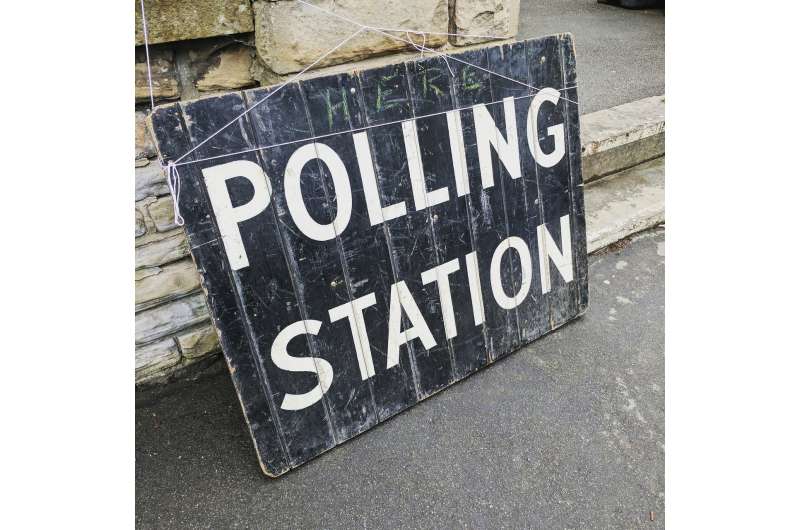Science
Study Links Voting Behavior to Increased Mortality Risk

Research published in the Journal of Epidemiology & Community Health reveals a significant connection between voting behavior and future mortality risk. The study suggests that participating in elections may be a stronger determinant of health than education, a traditionally recognized factor influencing well-being.
Over recent years, voting in national and local elections has emerged as a potential social determinant of health, encompassing non-medical factors that impact health outcomes. While previous studies indicated that voters tend to have better health than non-voters, the relationship between electoral participation and future death risk had not been extensively examined until now.
To investigate this link, researchers analyzed electoral participation data from the 1999 parliamentary elections in Finland, focusing on citizens aged at least 30. The turnout for this age group was notable, with 71.5% of men and 72.5% of women casting their votes. The study included a total of 3,185,572 individuals (1,508,824 men and 1,676,748 women) and monitored their survival from March 21, 1999 until death or the end of 2020, whichever occurred first.
During this period, 1,053,483 people died, with causes ranging from external factors such as accidents and violence to underlying health conditions. The findings indicated that non-voters faced a considerably increased risk of death: a 73% heightened risk for men and a 63% heightened risk for women. When adjusting for education level, these figures decreased slightly to a 64% risk for men and 59% for women. Notably, the disparity in mortality risk between voters and non-voters surpassed the differences seen between individuals with basic and tertiary education.
The relationship between voting behavior and mortality risk was particularly pronounced for deaths attributed to external causes. After adjusting for age, non-voters had a mortality risk that was double that of their voting counterparts. This association was most striking among men under 50, while among those aged 75 to 94, women who did not vote exhibited a higher risk of death than men who did participate.
Income levels also played a role in this study. Among men in the lowest 25% of household income, the risk of death linked to not voting was 9% to 12% higher than that of other income groups.
While this observational study highlights a significant correlation, the researchers caution that it cannot definitively establish causality. They acknowledge limitations, such as instances where individuals may have intended to vote but were unable to do so. Still, the research indicates that voting behavior correlates more strongly with mortality risk than educational attainment, which has long been viewed as a key factor in health disparities.
The researchers emphasize that voting acts as a form of social capital, associated with various health benefits. They suggest that increased civic participation, including voting, may enhance community well-being. Additionally, the data could have implications for clinical settings, where changes in voting habits might signal declines in health.
In conclusion, the study prompts a re-evaluation of how voting behavior is perceived in relation to health outcomes. It raises critical concerns regarding political representation and the potential health implications for non-voters. As the research progresses, further exploration of these connections may yield insights into addressing health disparities within populations.
For more details, refer to the article “Voting is a stronger determinant of mortality than education: a full-electorate survival analysis with 21-year follow-up,” published in the Journal of Epidemiology and Community Health.
-

 Technology5 months ago
Technology5 months agoDiscover the Top 10 Calorie Counting Apps of 2025
-

 Technology2 weeks ago
Technology2 weeks agoOpenAI to Implement Age Verification for ChatGPT by December 2025
-

 Health3 months ago
Health3 months agoBella Hadid Shares Health Update After Treatment for Lyme Disease
-

 Health3 months ago
Health3 months agoAnalysts Project Stronger Growth for Apple’s iPhone 17 Lineup
-

 Health3 months ago
Health3 months agoErin Bates Shares Recovery Update Following Sepsis Complications
-

 Technology5 months ago
Technology5 months agoDiscover How to Reverse Image Search Using ChatGPT Effortlessly
-

 Technology3 months ago
Technology3 months agoElectric Moto Influencer Surronster Arrested in Tijuana
-

 Technology2 months ago
Technology2 months agoDiscover 2025’s Top GPUs for Exceptional 4K Gaming Performance
-

 Technology5 months ago
Technology5 months agoMeta Initiates $60B AI Data Center Expansion, Starting in Ohio
-

 Technology5 months ago
Technology5 months agoRecovering a Suspended TikTok Account: A Step-by-Step Guide
-

 Health5 months ago
Health5 months agoTested: Rab Firewall Mountain Jacket Survives Harsh Conditions
-

 Lifestyle5 months ago
Lifestyle5 months agoBelton Family Reunites After Daughter Survives Hill Country Floods





















